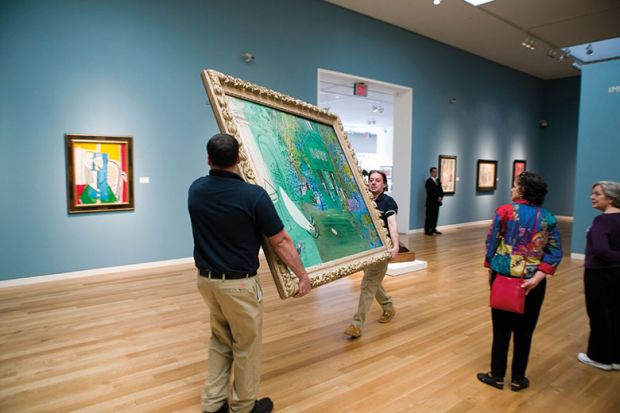Leading academics have called for the UK’s Arts and Humanities Research Council to be scrapped or scaled back, with funding being reallocated to the creation of tenure-track teaching jobs in new liberal arts-style colleges.
John Marenbon, senior research fellow and honorary professor of medieval philosophy at the University of Cambridge, claimed that group projects funded by the AHRC had “been shown to be damaging to research rather than beneficial to it”.
He was speaking ahead of the publication of his report, Intangible Assets: Funding Research in the Arts and Humanities, forthcoming from the thinktank Politeia, which proposes what claims to be a “more sustainable” model for supporting the disciplines.
The pamphlet proposes that the AHRC in its current form “should be closed down and the money now directed to it turned into a fund to encourage universities to give full, tenure-track teaching jobs (allowing normal research) to arts and humanities academics within three years of their PhD”.
Speaking at a debate ahead of the report’s launch, Lord Rees, the astronomer royal who is a former master of Trinity College, Cambridge, and an ex-president of the Royal Society, responded to Professor Marenbon’s vision by suggesting that funding for group research could instead be put towards turning 10 of the UK’s top performing universities into US-style liberal arts colleges.
While he did not agree that the AHRC should be scrapped entirely, Lord Rees said he was “concerned about the focus on precisely prescribed projects” awarded public funding over basic research.
“The UK’s universities obviously vary in quality,” he added, “but there’s a systemic weakness: their missions are not sufficiently varied.”
Lord Rees added: “It would be realistic to fund 10 possibly smaller universities [other than Oxford and Cambridge] so they can emulate US liberal art colleges in offering high quality, intensive teaching and thereby counterbalance the excessive allure of Oxbridge, at least for arts and humanities, as this, I think, is unhealthy and dominates the new agenda far too much.”
Professor Marenbon later agreed that the freedom awarded to academics working at liberal arts colleges “is something which fits very well with what I’ve been thinking about”.
He told Times Higher Education: “My contention is that in the visual arts and humanities the best research is done by individual researchers over a period of time without having to give the details of the whole project [to funders] in advance.
“The point is, in creating these liberal arts colleges, the academics there wouldn’t just be teaching drones, they would be people who had plenty of time to do their own research.”
Professor Marenbon’s report also calls for the arts and humanities to be excluded from the research excellence framework.
“Since arts and humanities subjects do not in reality receive the [quality-related] funds they win, there is no reason to require that they are assessed for them,” he states. “The exclusion of [these subjects] from the REF should prompt a rethinking and simplification of the whole system.”
Register to continue
Why register?
- Registration is free and only takes a moment
- Once registered, you can read 3 articles a month
- Sign up for our newsletter
Subscribe
Or subscribe for unlimited access to:
- Unlimited access to news, views, insights & reviews
- Digital editions
- Digital access to THE’s university and college rankings analysis
Already registered or a current subscriber? Login








